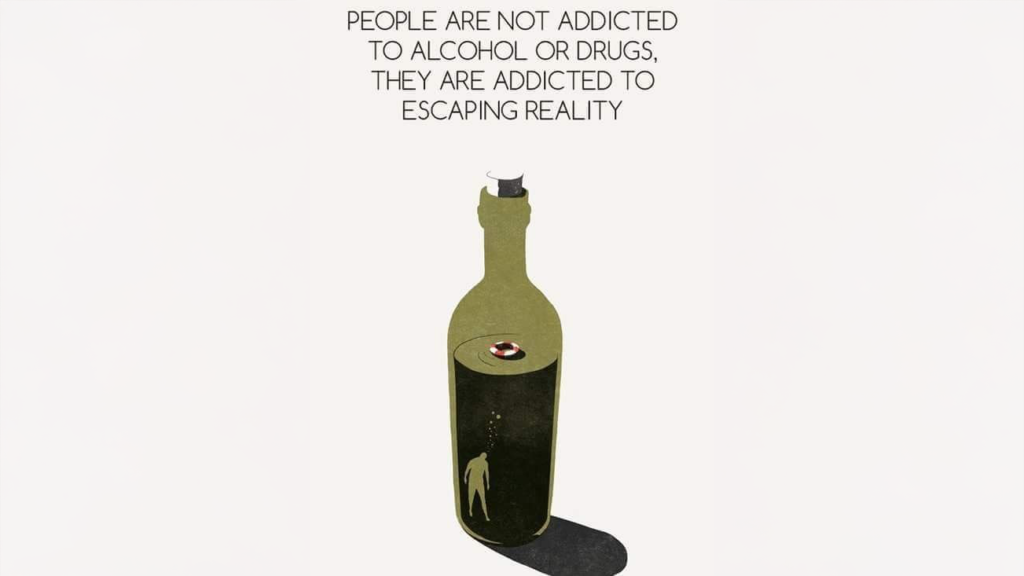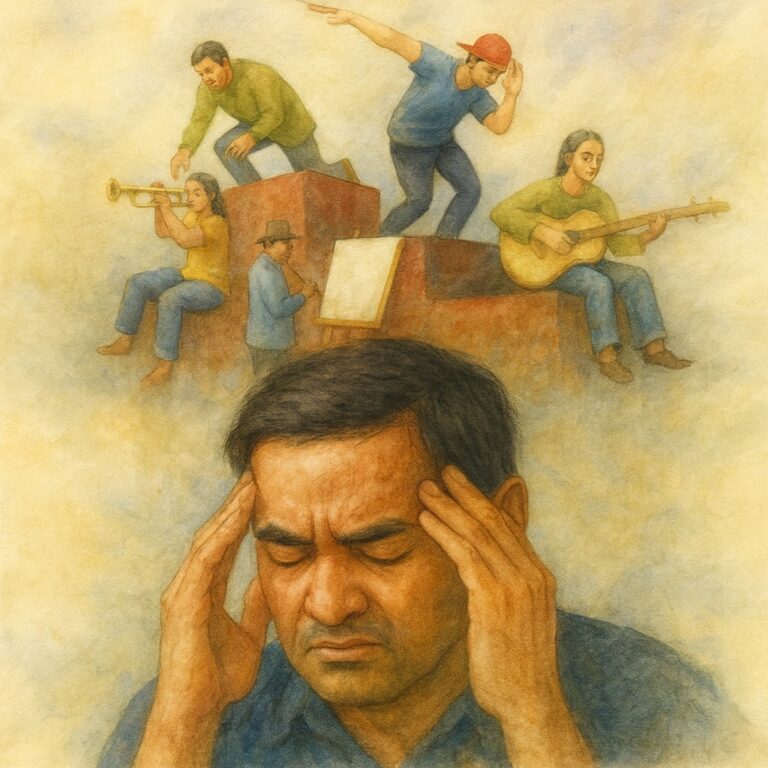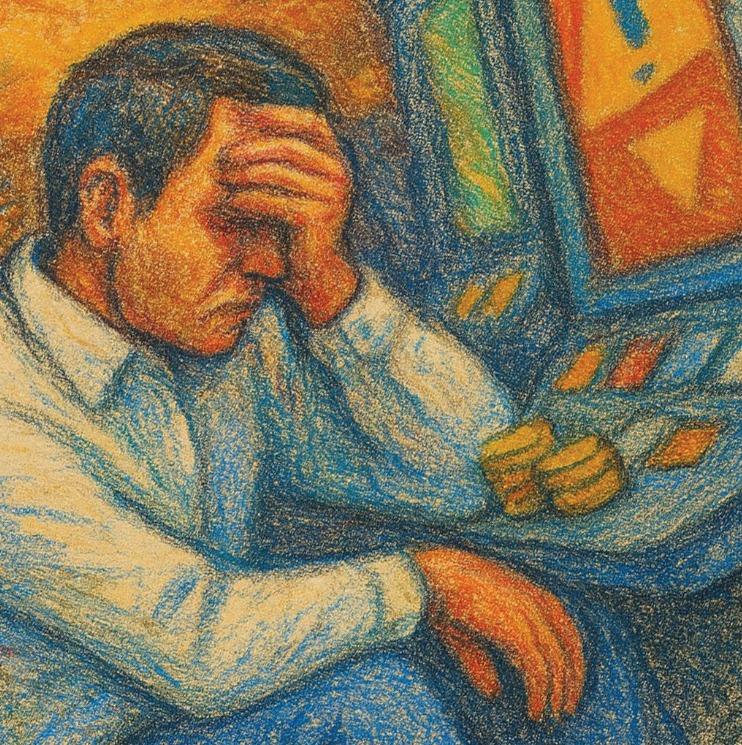Let’s have an honest conversation about alcohol addiction – not as experts looking down from tall glass towers, but as humans who understand how complex this journey can be.
Think of your relationship with alcohol like a friendship that started innocently enough. Maybe it was your go-to plus-one at social events, your comfort after a rough day, or your celebration companion. But somewhere along the way, this “friend” started demanding more and more of your time, energy, and health.
The changes can be subtle at first:
- That extra cup of coffee needed to focus at work
- The growing distance between you and friends who “just don’t get it”
- Those promises to yourself that keep getting broken
- The quiet moments when you know something’s not quite right
The gentle clink of ice against glass, the familiar burn of the first sip, the temporary relief – these sensations mask a darker reality that millions face daily.
Alcohol addiction, or Alcohol Use Disorder (AUD), isn’t just about drinking; it’s about a progressive condition that slowly transforms lives, relationships, and futures.
At Ganaa, we’ve witnessed countless stories of individuals grappling with these consequences, but we’ve also seen the extraordinary potential for recovery through our evidence-based treatment programs and supportive community.

Understanding Alcohol Addiction: Beyond Choice
Alcohol addiction isn’t a matter of willpower or moral failing.
It’s a complex medical condition that affects the brain’s reward system, decision-making capabilities, and emotional regulation centres.
When casual drinking evolves into dependency, it triggers a cascade of changes that impact every aspect of life.
The Science Behind Addiction
The journey from casual drinking to addiction involves several key processes:
- Neural Adaptation: Regular alcohol consumption forces the brain to adjust its chemical balance, leading to increased tolerance and dependency. What once took several drinks to achieve now requires more, creating a dangerous cycle of escalation.
- Reward Circuit Hijacking: Alcohol interferes with the brain’s natural reward system, making it increasingly difficult to feel pleasure from normal activities. This creates a dependency where drinking becomes necessary just to feel “normal.”
- Impaired Executive Function: The prefrontal cortex, responsible for decision-making and impulse control, becomes compromised, making it harder to resist cravings or recognise consequences.
Physical Health Consequences
Immediate Effects
The body bears the immediate burden of excessive alcohol consumption:
Liver Damage:
- Alcoholic fatty liver disease can develop within weeks of heavy drinking
- Cirrhosis, a potentially fatal condition, affects up to 20% of heavy drinkers
- Early intervention can reverse initial liver damage, highlighting the importance of timely treatment
Cardiovascular Issues:
- Increased risk of high blood pressure and irregular heartbeat
- Higher likelihood of heart disease and stroke
- Weakened heart muscle leading to cardiomyopathy- Cardiovascular Issues:
- Increased risk of high blood pressure and irregular heartbeat
- Higher likelihood of heart disease and stroke
- Weakened heart muscle leading to cardiomyopathy
Digestive System Problems:
- Chronic inflammation of the pancreas
- Increased risk of stomach ulcers and internal bleeding
- Malnutrition due to poor nutrient absorption
Long-term Health Risks
The extended impact of alcohol addiction includes:
Cancer Risk:
- Significantly higher chances of developing liver, throat, and breast cancer
- Increased risk of colorectal cancer
- Compromised immune system affecting cancer treatment outcomes
Neurological Damage:
- Permanent memory problems and cognitive decline
- Increased risk of early-onset dementia
- Peripheral neuropathy affecting balance and sensation
Mental Health and Emotional Impact
Psychological Consequences
Alcohol addiction creates a complex web of mental health challenges:
Depression and Anxiety:
- Alcohol’s depressant effects worsen existing mental health conditions
- Creates a cycle of drinking to cope with emotional pain
- Increases risk of suicidal thoughts and behaviours
Cognitive Function:
- Impaired memory and learning abilities
- Difficulty concentrating and making decisions
- Emotional regulation problems affecting relationships and work
Social and Relationship Effects
The ripple effects extend beyond the individual:
Family Impact:
- Strained relationships with spouse and children
- Increased risk of domestic violence
- Generational trauma affecting children’s future relationships
Professional Consequences:
- Decreased work performance and productivity
- Higher rates of unemployment
- Lost career opportunities and financial stability
Financial and Legal Consequences
Economic Impact
Alcohol addiction creates significant financial burden:
Direct Costs:
- Money spent on alcohol
- Medical expenses and health complications
- Legal fees from alcohol-related incidents
Indirect Costs:
- Lost wages and reduced earning potential
- Damaged credit and financial stability
- Long-term healthcare expenses
Legal Ramifications
Legal issues often accompany addiction:
Criminal Charges:
- DUI/DWI offences
- Public intoxication
- Alcohol-related violence
The Path to Recovery at Ganaa
Our Comprehensive Approach
At Ganaa, we understand that effective treatment must address all aspects of addiction:
Medication-Assisted Treatment:
- Evidence-based medications to manage withdrawal
- Supervised detoxification process
- Ongoing medical support throughout recovery
Community Support:
- The 12-steps recovery program
- Peer support networks
- Family education and involvement
Holistic Therapies:
- Individual and group counselling
- Family therapy sessions
- Mind-body healing approaches
Taking the First Step
Recovery begins with acknowledgment and action:
1. Recognition: Understanding that alcohol use has become problematic
2. Assessment: Professional evaluation of addiction severity
3. Treatment Planning: Customised recovery programs based on individual needs
4. Support: Ongoing care and community connection
Prevention and Early Intervention
Warning Signs
Recognizing early indicators can prevent severe consequences:
- Increased tolerance to alcohol
- Failed attempts to cut down or stop drinking
- Continuing to drink despite negative consequences
- Experiencing withdrawal symptoms when not drinking
Risk Factors
Understanding risk factors helps in prevention:
- Family history of addiction
- Mental health conditions
- Environmental stressors
- Early exposure to alcohol
Hope for Recovery
While the consequences of alcohol addiction are severe, recovery is possible. At Ganaa, we’ve witnessed countless individuals reclaim their lives through:
Dedicated treatment programs
- Supportive community environment
- Evidence-based therapeutic approaches
- Ongoing aftercare support
Start Your Mental Health Journey with Ganaa Today
Whether you’re seeking help for yourself or a loved one, Ganaa offers evidence-based, compassionate
mental health care that’s rooted in dignity and excellence.
Contact us at +91 8750075006 or visit www.ganaa.in to begin your journey toward mental wellness.
At Ganaa, we create a space where you can be completely honest about your struggles without judgement. Because we know that behind every addiction story is a human being worthy of understanding, support, and a chance to rewrite their story.
Ready to talk about yours? We’re here to listen.












